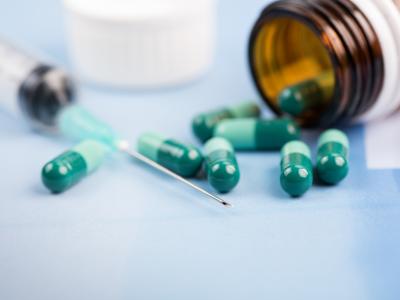Maximising benefits and savings in cancer research: how trials optimising the use of expensive drugs pay for themselves

Maximising benefits and savings in cancer research: how trials optimising the use of expensive drugs pay for themselves
Developing effective cancer drugs is a complex and challenging endeavour. When a new cancer drug becomes available, it is undoubtedly great news, offering patients the potential to live longer and/or better lives. However, the journey of a new drug has only just begun. Questions then arise about optimising its use.
Before any cancer drug is authorised in Europe, it undergoes rigorous clinical trials to demonstrate safety and efficacy. As its use broadens, we continue to learn about who it truly is. Unexpected effects occur, both negative (toxicity) and positive (efficacy in other cancers), and suggestions of ways to use it even more effectively emerge.
Every new drug comes with a recommended dose (strength) and schedule (frequency of administration and duration) which are thought to provide the greatest efficacy with the lowest toxicity, at the time of the authorisation. As knowledge about the drug grows, healthcare professionals and researchers realise that alternative doses and schedules could lead to even better outcomes for patients. We call this drug optimisation.
What’s the optimal dose for a drug?
To optimise the use of drugs, additional clinical trials are necessary. If the goal of these trials is to give patients less drugs, these trials are not organised by pharmaceutical companies but by dedicated oncologists who believe their patients can benefit from these optimisations. Funding comes from government research agencies and charities, in a desire to improve patient care regardless of any financial return.
Optimising drug usage also has an economic incentive. New cancer drugs often come with a price tag of 100,000 euro or more for a year of treatment. Consequently, an optimised treatment schedule that uses for instance 50% of the standard dose – assuming this remains as effective but less toxic than the standard dose – represents substantial savings for the national health system, of 50,000 euro per patient.
If a clinical trial randomises 1,000 patients into a standard arm (100% dose) and 1,000 patients into an optimised arm (50% dose), the trial could save the national healthcare system 50,000,000 euro. Knowing that the costs of a clinical trial are approx. 5,000 euro per patient, the trial is not only self-financing (10,000,000 euro needed for a 2,000-patient trial), but also generates an additional 40,000,000 euro for the healthcare system.
At the Anticancer Fund, we believe that healthcare systems should recognize the potential of this self-financing, sustainable model and swiftly implement funding programs. This would enable us and other charities to focus on funding other important and complementary optimisation trials that may not be self-financing, such as the ANZadapt and ACTOv trials that we support.
Self-sustaining trials means cost savings
The Netherlands has already set an example with its Treatmeds-programme, where ten health insurers jointly fund optimisation trials for expensive drugs. They have realised that the programme is not only self-sustaining, but also improves their clients’ lives while saving costs. We hope that other countries will follow.
In conclusion, the high costs of new drugs provide an opportunity to run clinical trials optimising their uses at no cost. Thanks to self-financing trials, healthcare systems can improve patient outcomes while saving substantial healthcare expenditures, a win-win for all. Which country, after the Netherlands, is next?
The topic of this blog reflects the presentation I was invited to give during the Optimal Cancer Care Alliance annual conference, an Alliance of healthcare professionals whose main objective is to ensure that each patient receives the optimal dose of the medications needed to effectively treat their cancer. You can watch the recording of this presentation here.

